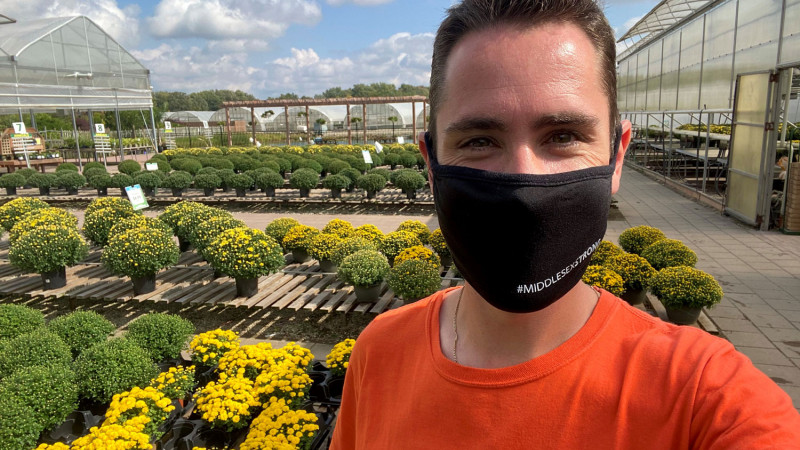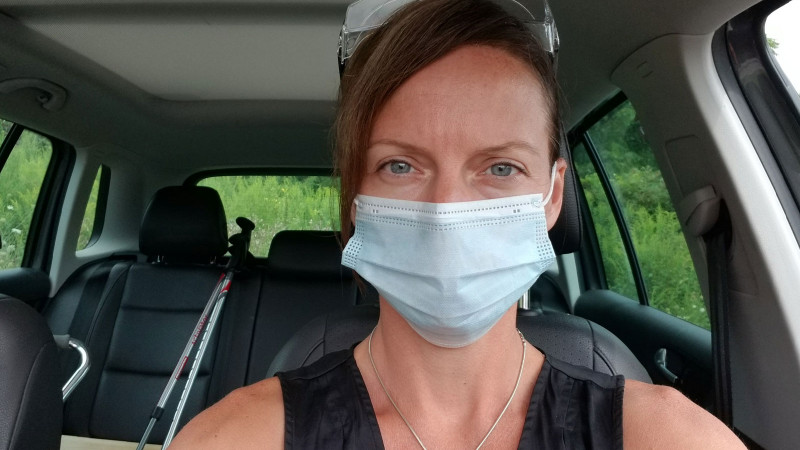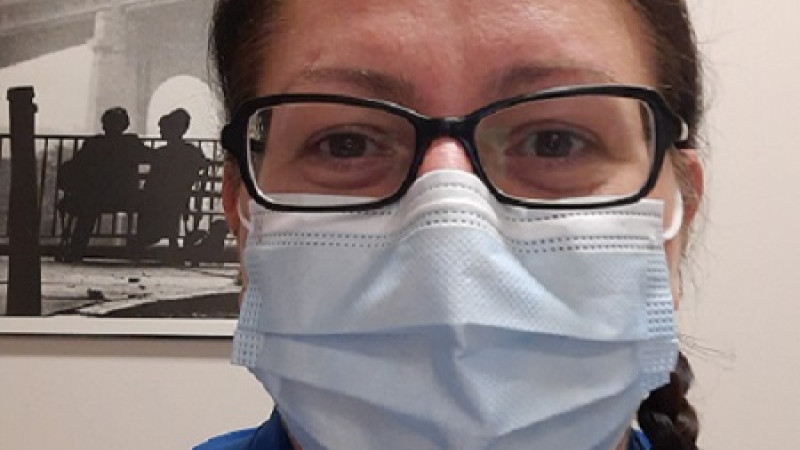Ask for help
A psychologist and single mom, Dr. Marilyn Hill was thrown more than one curve ball with the arrival of COVID-19. “I normally juggle a busy schedule of full-time work, parenting, household chores, activities etc. – and suddenly, my routines were turned upside down. My daily “to do” list now also included homeschooling my nine-year old son. I will admit, there were some rough moments!”
Marilyn’s role in the Pain Management Program is to provide education, coping skills and therapy to help people manage their pain. “Typically, I provide group therapy and hold workshops for dozens of patients and family members in our auditorium. No longer an option, I began working from home, providing group therapy through videoconferencing for the first time in my career. The learning curve was steep.”
That curve did not just impact Marilyn, but also her colleagues and patients. “Everything changed. My co-workers and I could no longer provide in-person care, and two-thirds of our team was redeployed to our long-term care facility or the COVID-19 screening centres. We also knew that many of our patients would struggle to manage their pain due to pandemic stressors without access to their usual treatment.”
The pain management team understands the toll pain can take on someone’s mental health. Add isolation and fear created by the pandemic and it was crucial for the team to connect with their patients. It was time to get creative. “With a mailing list of more than 600 patients, we had an opportunity to help many people through a difficult time. Our team began a weekly newsletter to stay connected with our patients, and to provide treatment and support in new ways. I provided guidance on managing isolation and depression. Many patients commented that the regular contact with their health care team reminded them they were not alone, and helped them to manage pain flare-ups and avoid emergency room visits.”
With her colleagues, Marilyn began running virtual workshops on coping with pain during COVID-19 through videoconferencing. “Our patients were lovely. They worked with us through glitches and provided invaluable feedback as we learned how best to connect and provide care in this new format.”
Finally able to hold her newborn nephew after months of seeing him on a screen, Marilyn suggests we all take a moment to be mindful of the toll pandemic stressors can have on emotional wellbeing. Ask yourself if you are feeling overwhelmed, anxious, agitated, frustrated, sad or are having trouble concentrating. “These are all normal responses. Do not ignore your feelings and make time for things that give you joy and pleasure each day. When that is not enough, ask for help.”



